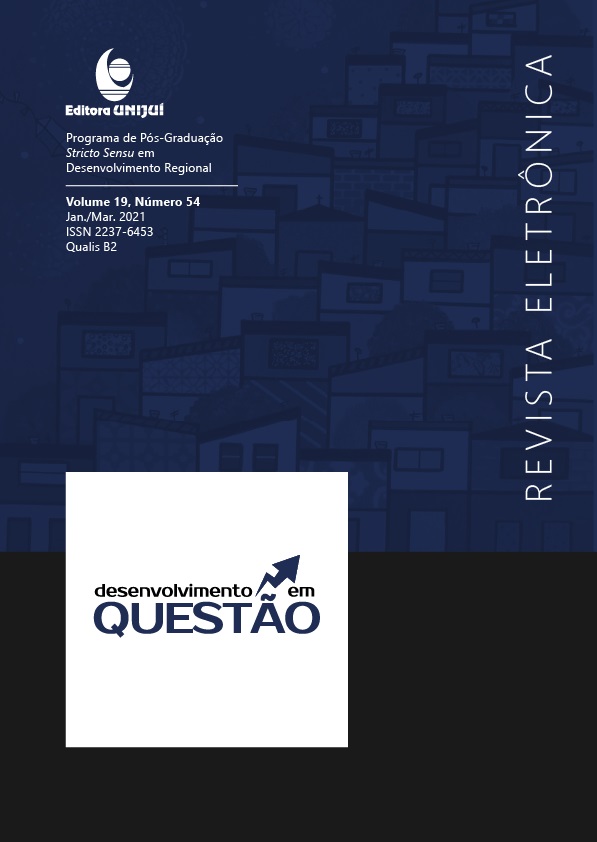PERCEPTION OF NUTRITIONISTS ON THE ACQUISITION OF FAMILY AGRICULTURAL PRODUCTS FOR SCHOOL FOOD IN THE NORTHWEST COLONIAL CITIZEN TERRITORY/RS
DOI:
https://doi.org/10.21527/2237-6453.2021.54.250-261Keywords:
School Feeding. Nutritionist. Rural Development. Public policy.Abstract
Law No. 11.947/2009 guarantees school feeding for students of all public basic education and requires that of the total resources passed on by the National Education Development Fund to the municipalities or states, at least 30% should be used for the acquisition of Products from family farming. The objective of this research was to analyze and map the family farming included in the National School Feeding Program in the Northwest Colonial Territory - RS, as well as to analyze the perception of nutritionists regarding the difficulties encountered in buying food from family farmers and the benefits that this Law brought to each municipality. Methodology: A qualitative descriptive study where the nutritionists of the three municipalities with the highest and lowest percentage of purchases of family agriculture were interviewed in the year 2014. The interviews were carried out from May to September 2016, individually in the work environment of these professionals, which were recorded, later transcribed and analyzed. Results: All the interviewees emphasized that this Program strengthens the local Family Agriculture, besides generating more employment and income for the municipality, affirm that with PNAE the students receive a healthier diet, contributing to the improvement of eating habits and school performance. The main difficulties cited by the interviewees were the lack of organization on the part of the producers. Conclusion: Therefore, in the perception of nutritionists interviewed this Law benefited students and farmers in the region and the main difficulties encountered were bureaucratic processes, production organization and sanitary inspection.
Downloads
Published
How to Cite
Issue
Section
License
By publishing in Revista Desenvolvimento em Questão, authors agree to the following terms:
All works are published under the Creative Commons Attribution 4.0 International License (CC BY 4.0), which allows:
Sharing — to copy and redistribute the material in any medium or format;
Adaptation — to remix, transform, and build upon the material for any purpose, even commercially.
These permissions are irrevocable, provided that the following terms are respected:
Attribution — authors must be properly credited, a link to the license must be provided, and any changes made must be indicated.
No additional restrictions — no legal or technological measures may be applied that legally restrict others from doing anything the license permits.
Notices:
The license does not apply to elements that are in the public domain or covered by legal exceptions.
The license does not grant all necessary rights for specific uses (e.g., image rights, privacy, or moral rights).
The journal is not responsible for the opinions expressed in the articles, which are the sole responsibility of the authors. The Editor, with the support of the Editorial Board, reserves the right to suggest or request modifications when necessary.
Only original scientific articles presenting research results of interest that have not been previously published or simultaneously submitted to another journal with the same purpose will be accepted.
Mentions of trademarks or specific products are intended solely for identification purposes and do not imply any promotional relationship by the authors or the journal.
License Agreement (for articles published from 2025 onward): Authors retain the copyright to their article and grant Revista Desenvolvimento em Questão the right of first publication.











